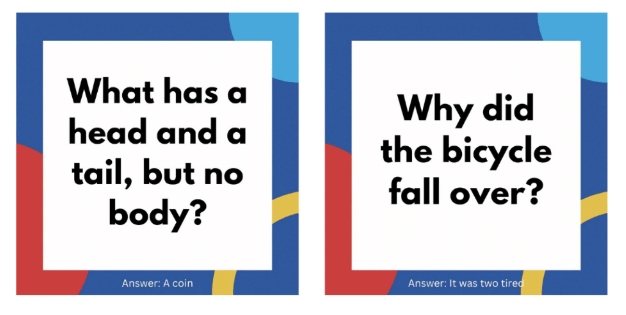Trick questions, often seen as simple puzzles or riddles, carry a surprising depth that goes beyond their amusing nature. Especially when tailored for younger audiences, these tricky questions for kids can transform a moment of learning into an engaging and enjoyable experience. While they may appear as mere fun on the surface, these questions are potent tools for educational development, designed to sharpen the mind in more ways than one.
Math & ELA | PreK To Grade 5
Kids see fun.
You see real learning outcomes.
Watch your kids fall in love with math & reading through our scientifically designed curriculum.
Parents, try for free Teachers, use for free
This blog post is structured to guide you through 60 best tricky questions with answers for kids. Whether you’re a teacher looking to spice up your classroom activities or a parent on the hunt for a fun learning tool, this compilation has something to tickle every young brain.
Take the first step towards making learning an exciting adventure for your child. Sign up on SplashLearn and explore a universe of knowledge!
15 Easy Tricky Questions for Kids
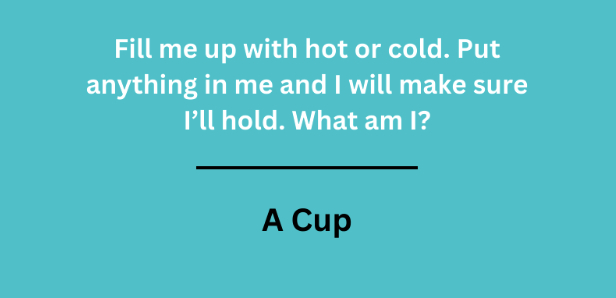
Q: What comes down but never goes up?
A: Rain.
Q: What has keys but can’t open locks?
A: A piano.
Q: How many months have 28 days?
A: All of them.
Q: Where does today come before yesterday?
A: In a dictionary.
Q: What has a head and a tail but no body?
A: A coin.
Q: What gets wetter as it dries?
A: A towel.
Q: What can you catch but not throw?
A: A cold.
Q: I’m light as a feather, but not even the strongest person can hold me for long. What am I?
A: Breath.
Q: What is full of holes but still holds water?
A: A sponge.
Q: What has one eye but can’t see?
A: A needle.
Q: What can travel around the world while staying in a corner?
A: A stamp.
Q: What has hands but cannot clap?
A: A clock.
Q: What has a neck but no head?
A: A bottle.
Q: You see it once in June, twice in November, but not at all in May. What is it?
A: The letter “e”.
Q: What goes up when rain comes down?
A: An umbrella.
Related Reading: Great Ice Breaker Questions for Kids to Share
15 Hard Tricky Questions For Kids
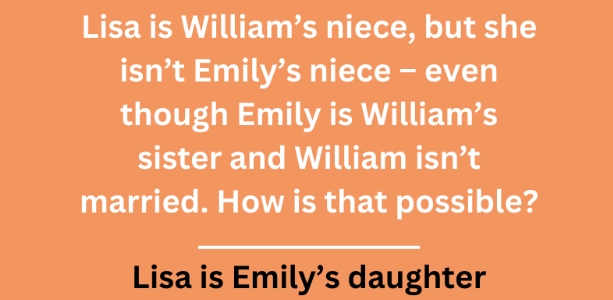
Q: What has a heart that doesn’t beat?
A: An artichoke.
Q: If two’s company, and three’s a crowd, what are four and five?
A: Nine.
Q: What begins with T, ends with T, and has T in it?
A: A teapot.
Q: I speak without a mouth and hear without ears. I have no body, but I come alive with wind. What am I?
A: An echo.
Q: You walk into a room that contains a match, a kerosene lamp, a candle, and a fireplace. What would you light first?
A: The match.
Q: What can run but never walks, has a mouth but never talks, has a head but never weeps, has a bed but never sleeps?
A: A river.
Q: The more of this there is, the less you see. What is it?
A: Darkness.
Q: I am not alive, but I grow; I don’t have lungs, but I need air; I don’t have a mouth, but water kills me. What am I?
A: Fire.
Q: What comes once in a minute, twice in a moment, but never in a thousand years?
A: The letter “m”.
Q: What can fill a room but takes up no space?
A: Light.
Q: If you have it, you want to share it. If you share it, you don’t have it. What is it?
A: A secret.
Q: What starts with an ‘e’ and ends with an ‘e’ but only has one letter in it?
A: An envelope.
Q: What is so fragile that saying its name breaks it?
A: Silence.
Q: What has cities, but no houses; forests, but no trees; rivers, but no water?
A: A map.
Q: What has words, but never speaks?
A: A book.
Related Reading: Hard Trivia Questions and Answers for Kids
15 Funny Tricky Questions for Kids
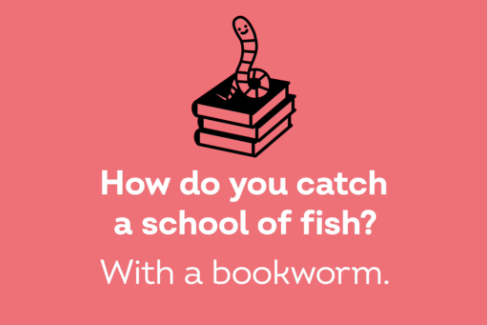
Q: Why can’t a nose be 12 inches long?
A: Because then it would be a foot.
Q: What has ears but cannot hear?
A: A cornfield.
Q: What gets bigger the more you take away?
A: A hole.
Q: Why did the scarecrow win an award?
A: Because he was outstanding in his field.
Q: What do you call a dinosaur that is sleeping?
A: A dino-snore.
Q: What has teeth but can’t bite?
A: A comb.
Q: What is orange and sounds like a parrot?
A: A carrot.
Q: What do you call cheese that isn’t yours?
A: Nacho cheese.
Q: What kind of room has no doors or windows?
A: A mushroom.
Q: Why don’t eggs tell jokes?
A: Because they might crack up.
Q: What do you call a bear with no teeth?
A: A gummy bear.
Q: What do you call a snowman in July?
A: A puddle.
Q: What is a witch’s favorite subject in school?
A: Spelling.
Q: What goes up and down but doesn’t move?
A: A staircase.
Q: Why was the math book sad?
A: Because it had too many problems.
15 Math Tricky Questions for Kids
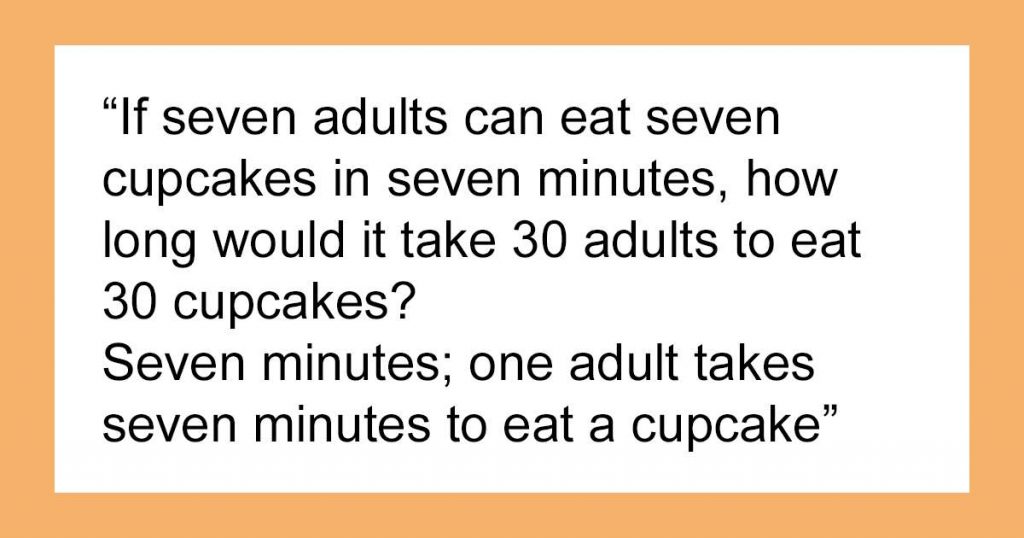
Q: If five cats catch five mice in five minutes, how long will it take one cat to catch one mouse?
A: Five minutes.
Q: What three numbers, none of which is zero, give the same result whether they’re added or multiplied?
A: 1, 2, and 3.
Q: What is the next number in the sequence: 2, 3, 5, 7, 11, …?
A: 13 (it’s a sequence of prime numbers).
Q: If you divide 30 by half and add ten, what do you get?
A: 70 (30 divided by 1/2 equals 60).
Q: There are 6 apples in a basket and you take away 4. How many do you have?
A: The 4 you took.
Q: Using only addition, how do you add eight 8’s and get the number 1000?
A: 888 + 88 + 8 + 8 + 8 = 1000.
Q: If a rooster laid a brown egg and a white egg, what kind of chicks would hatch?
A: Roosters don’t lay eggs.
Q: What number do you get when you multiply all of the numbers on a telephone’s number pad?
A: Zero (because any number multiplied by zero is zero).
Q: If there are three apples and you take away two, how many apples do you have?
A: You have two apples.
Q: A farmer has 17 sheep, and all but 9 die. How many are left?
A: Nine.
Q: I am an odd number. Take away one letter and I become even. What number am I?
A: Seven (remove the ‘s’ and it becomes ‘even’).
Q: How many times can you subtract 10 from 100?
A: Once (after that, you’re subtracting from 90).
Q: What starts with a P, ends with an E, and has thousands of letters?
A: Post Office.
Q: If you’re running in a race and you pass the person in second place, what place are you in?
A: Second place.
Q: Two fathers and two sons go fishing. They catch three fish and each gets one. How?
A: There are three people: a grandfather, a father (who is also the son of the grandfather), and a son.
Related Reading: Best Math Puzzles for Kids to Improve Cognitive Abilities
How Can Tricky Questions Help?
- Engaging with trick questions encourages children to step beyond conventional thinking patterns, urging them to explore the realms of critical thinking and creativity.
- These questions challenge their assumptions, pushing them to consider multiple perspectives or the deeper meaning behind words and phrases.
- Trick questions can serve as excellent mind tricks for kids, subtly honing their ability to focus, analyze, and solve problems in a playful context.
5 Tips For Creating Effective Trick Questions for Kids
Creating trick questions to ask kids that are both fun and educational can be a delightful challenge. Here are five simple tips to ensure that your trick questions capture their imagination, tickle their funny bones, and get those cogs turning:
1. Keep it simple and age-appropriate: The best trick questions for kids are those that they can understand. Use language and concepts that are appropriate for their age. This ensures that they are neither too easy nor too hard, but just right to spark curiosity and engagement.
2. Use wordplay and puns for humor: Kids love to laugh, and incorporating puns or playful language into your questions can make learning fun. This approach not only makes the questions more enjoyable but also introduces kids to the nuances of language in a memorable way.
3. Incorporate everyday scenarios to make them relatable: When kids can relate to the questions, they’re more likely to engage. Using scenarios from daily life or familiar stories can help make the trick questions more accessible and interesting to them.
4. Challenge assumptions in a fun way: The essence of trick questions lies in their ability to make us question our initial thoughts. Encourage kids to think outside the box by crafting questions that challenge common assumptions. This method promotes critical thinking and problem-solving skills in a light-hearted manner.
5. Test your questions on kids to see if they are engaging and at the right difficulty level: The best way to know if your trick questions hit the mark is to try them out with your intended audience. Observing their reactions will give you valuable insights into what works and what might need a little tweaking.
Conclusion
Trick questions are a fantastic way to make learning fun and engaging for kids. They encourage critical thinking, creativity, and a love for problem-solving, all while providing a good laugh. Whether you’re a teacher or a parent, using these playful challenges can transform any learning moment into an adventure. So, go ahead and try some of these trick questions with the little learners in your life!
Related Reading: Best Brain Teasers for Kids to Enhance Focus & Memory
Frequently Asked Questions (FAQs)
What is a tricky question?
A tricky question is a question that seems simple at first but requires more thought to answer correctly. It often involves a play on words or challenges common assumptions, encouraging deeper thinking.
What are some confusing questions for kids?
Confusing questions for kids typically involve puzzles or riddles that seem straightforward but have unexpected answers. Examples include “What has keys but can’t open locks?” or “What comes down but never goes up?”
What's the most difficult question for kids?
The most difficult question for kids often depends on their age and interests, but challenging math riddles or puzzles that require abstract thinking tend to be universally tough. For example, “If two’s company, and three’s a crowd, what are four and five?” (The answer is “9” because it’s four plus five).

















